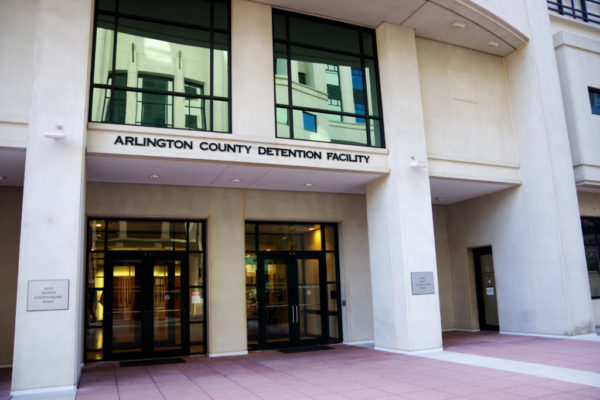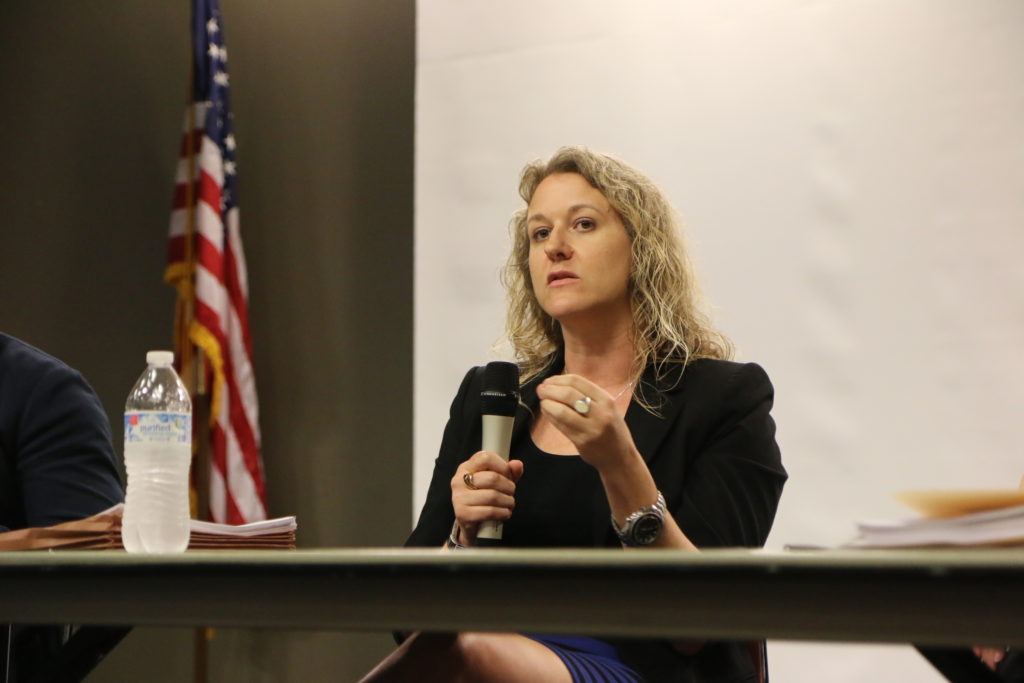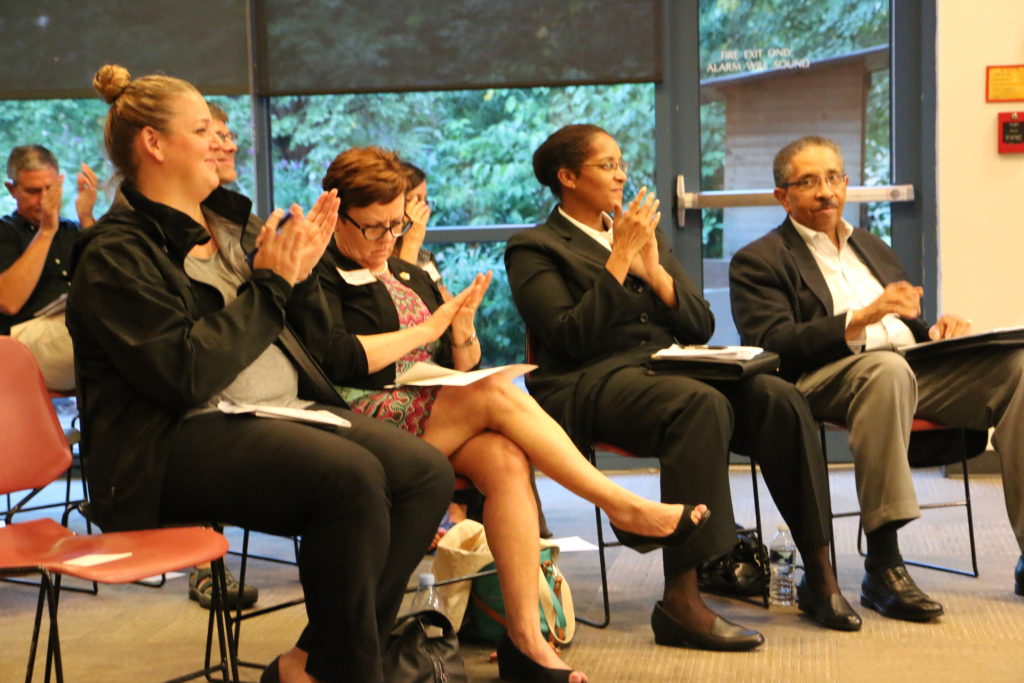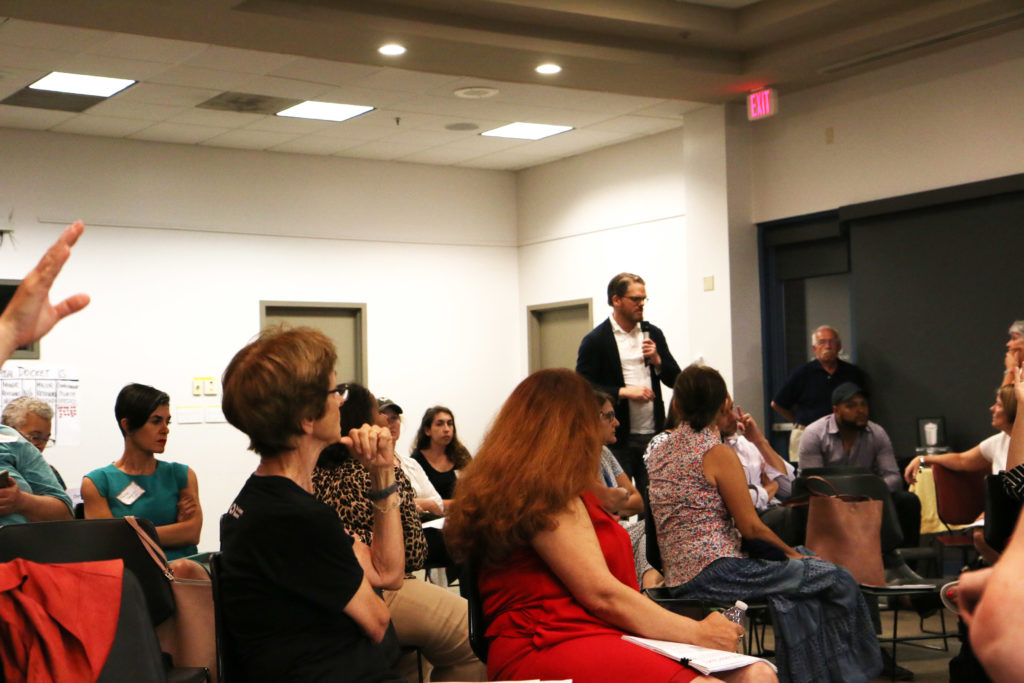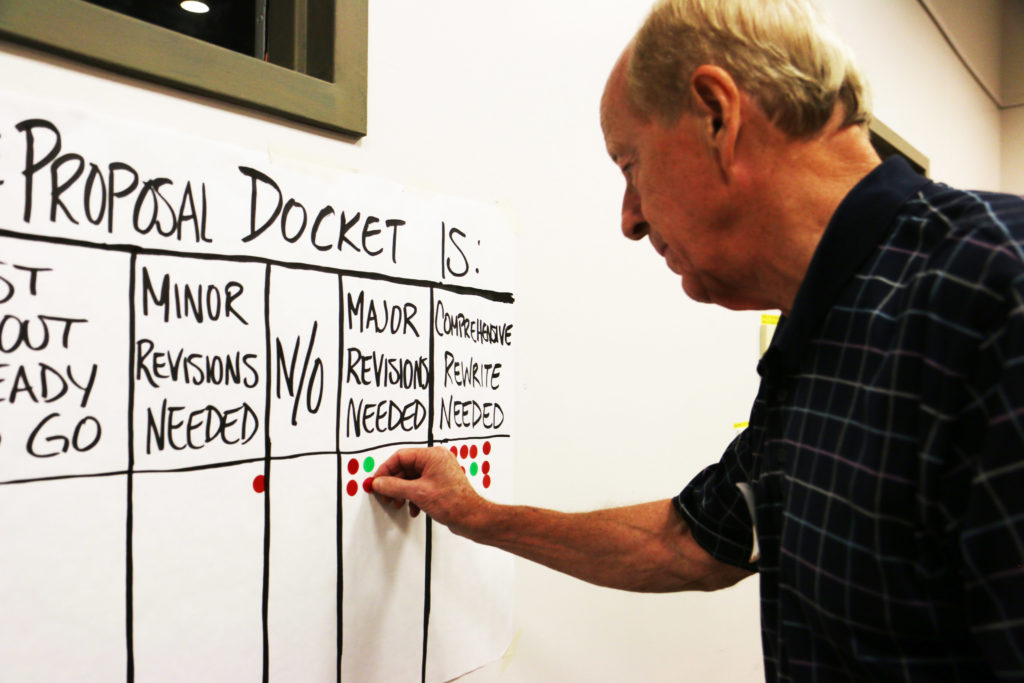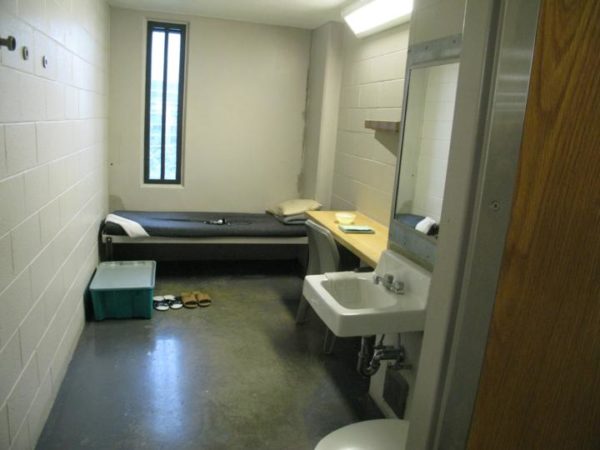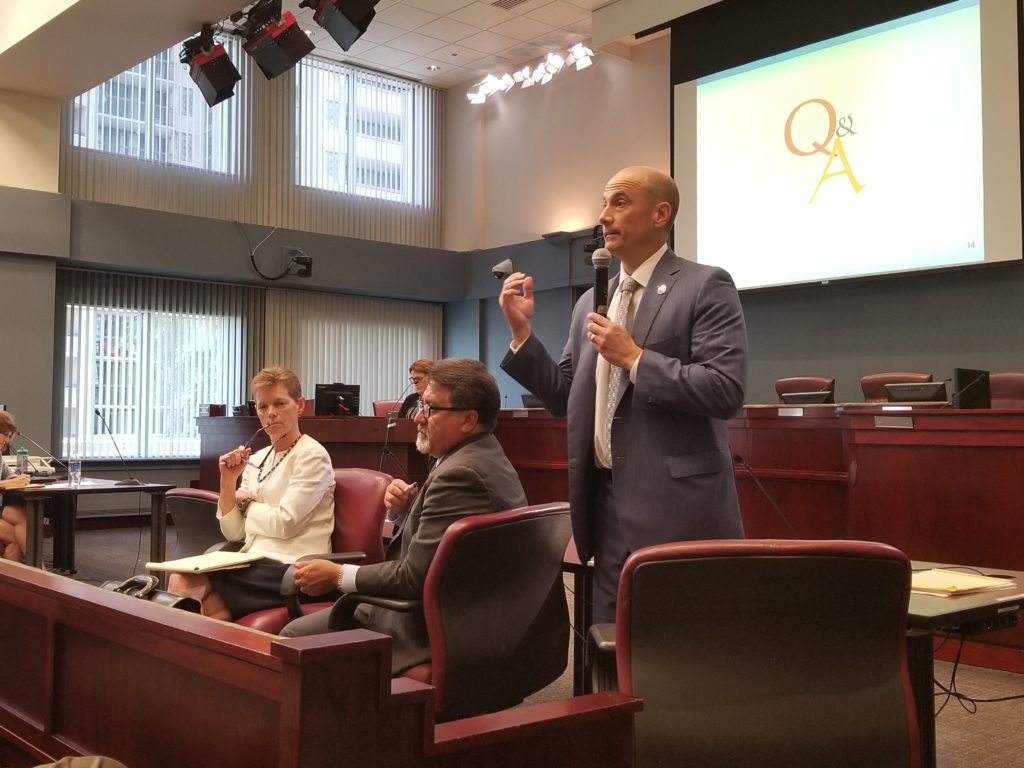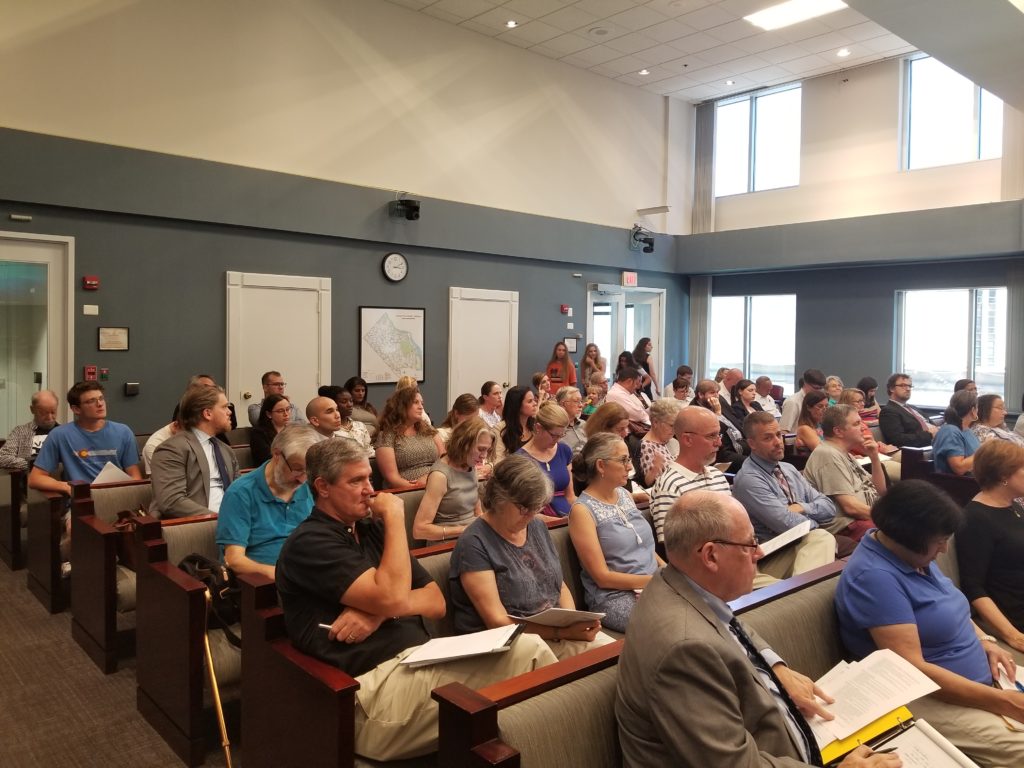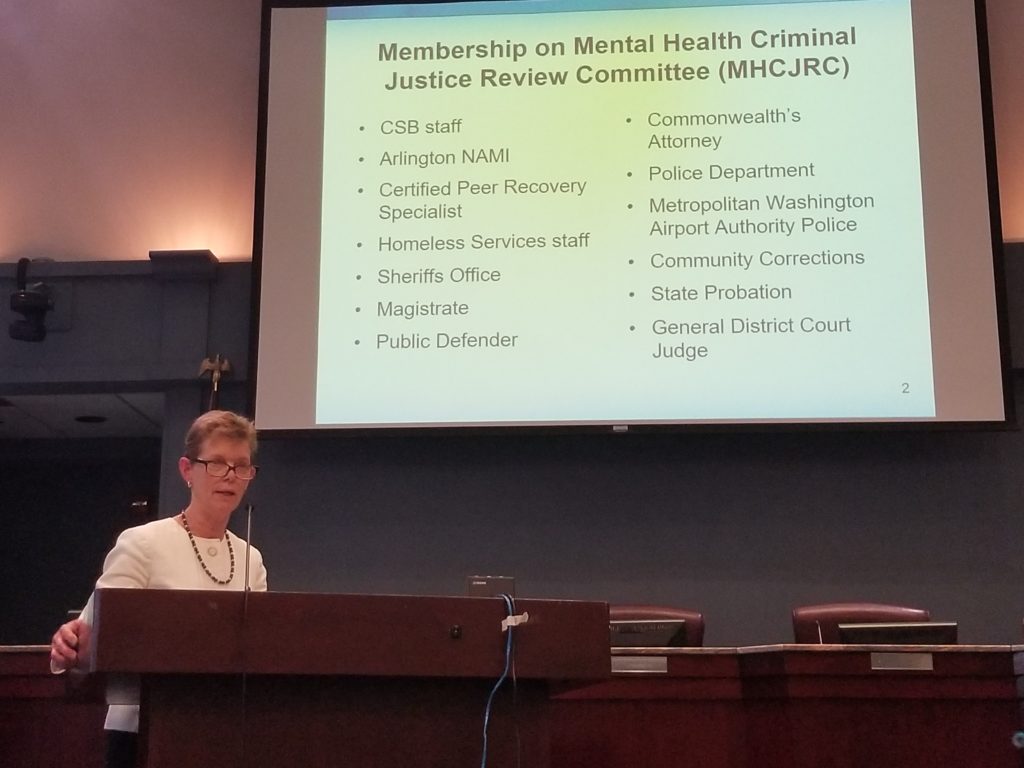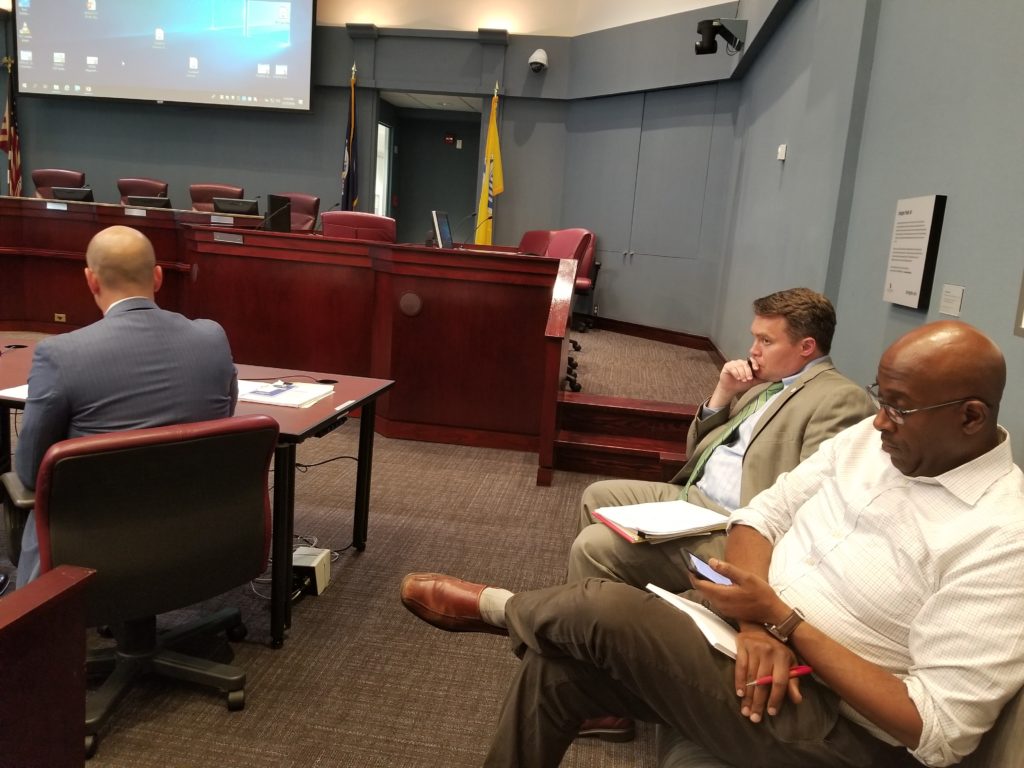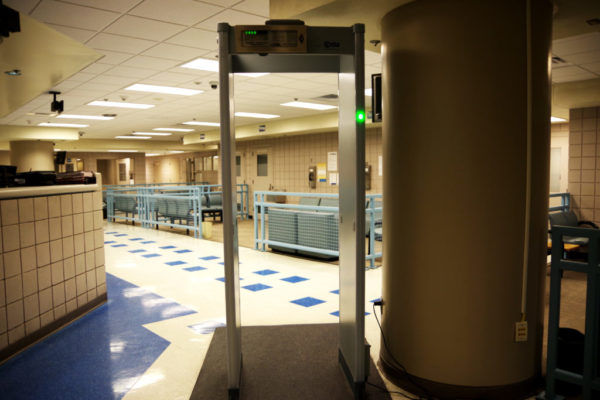
Arlington County is considering a new program to divert people with mental illnesses into treatment instead of jail.
The proposed program would waive incarceration for people with mental illnesses who are convicted of non-violent misdemeanors if they agree to an intensive treatment program supervised by a judge. All the officials who spoke to ARLnow about the program supported it, but some weren’t aware the county was working on the program and said they had little opportunity to add input.
The Arlington County’s Department of Human Services is spearheading the program. A spokesman told ARLnow on June 27 that in response to “recent requests” it would host a public meeting on the so-called Behavioral Health Docket on Wednesday, July 17 at 3 p.m. The location of the meeting has yet to be determined.
“The aim is to divert eligible defendants with diagnosed mental health disorders into judicially supervised, community-based treatment, designed and implemented by a team of court staff and mental health professionals,” said DHS Assistant Director Kurt Larrick.
This new docket aims to accept defendants 18 or older who reside in Arlington and who are diagnosed with a serious mental illness, Larrick said. Additionally, only defendants who have been charged with misdemeanors, not felonies, would be eligible for the diversion program. Defendants would need to agree to work with a team of mental health professionals and program staff to enroll in the docket and agree to follow a treatment plan with some supervision.
“These programs are distinguished by several unique elements: a problem-solving focus; a team approach to decision-making; integration of social services; judicial supervision of the treatment process; direct interaction between defendants and the judge; community outreach; and a proactive role for the judge,” Larrick said.
Where Mental Illness and the Law Collide
Officials and advocates say they hope that the docket will help break the cycle of recidivism that some people with mental illnesses fall into.
“Arlington has a significant number of people with mental illnesses that intersect with the criminal justice system,” Deputy Public Defender Amy K. Stitzel told ARLnow. “Evidence-based mental health dockets not only treat instead of criminalizing behavior that is a result of mental illness, they increase treatment engagement, improve quality of life, reduce recidivism and save money.”
“We’re talking about people who are arrested for vagrancy and loitering and trespassing,” said Naomi Verdugo, who has been an activist for people in Arlington with mental illness for several years. “These are largely misdemeanors and stupid things, and it’s because they aren’t well. We would be better off putting services around them than paying to incarcerate people who are just going to reoffend.”
“It is clear that the local and regional jails in Virginia have a substantial number of persons with mental illness in their care, and that this care is costly to the localities and to the Commonwealth,” says a 2017 study of similar programs statewide.
The most recent data from Virginia jail surveys indicate that statewide 1 in 10 of the inmates counted was diagnosed with a serious mental illness, such as PTSD or schizophrenia, and about 20% of all inmates had some kind of mental illness.
In Arlington, data from 2016, 2017, and 2018 indicates the most common diagnoses for inmates are bipolar disorder/major depressive and schizophrenia.
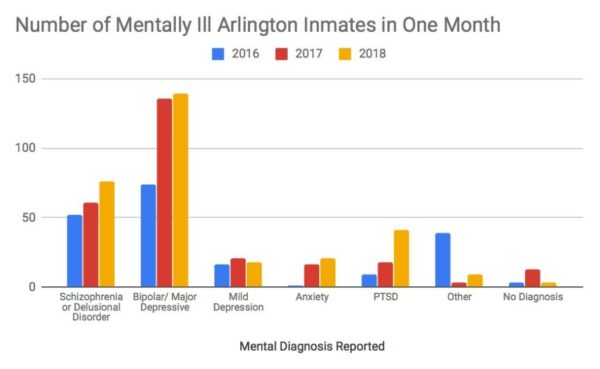
Chief Public Defender Brad Haywood said his office has been part of a team discussing mental health improvements for 15 years with the county’s Mental Health Criminal Justice Review Committee, and for the past five years with a subcommittee dedicated to creating a docket, called the Behavioral Health Docket Committee. Haywood strongly supports the idea of a Behavioral Health Docket but noted his office wasn’t notified the county had advanced plans for the docket until recently.
“This is not a transparent approach”
While he applauded DHS for moving the program forward, Haywood said he would have liked more input on the design when organizers decided to require defendants plead guilty before participating in the program.
“From our perspective, until early spring of 2019, the process for drafting and submitting an application for the Mental Health Docket seemed to be moving very slowly,” he said. “I don’t know what changed that took the process to where it is now, to having tight deadlines and short comment periods.”
Commonwealth’s Attorney candidate Parisa Dehghani-Tafti, who recently won the Democratic primary against incumbent prosecutor Theo Stamos, said she heard about the docket for the first time two weeks ago. During her campaign, Tafti advocated for a mental health court as part of larger criminal justice reforms, but said she wasn’t given a chance to comment on the Behavioral Health Docket.
She told ARLnow that she has concerns the new program “criminalizes mental illness” by requiring a plea to participate.
(more…)


